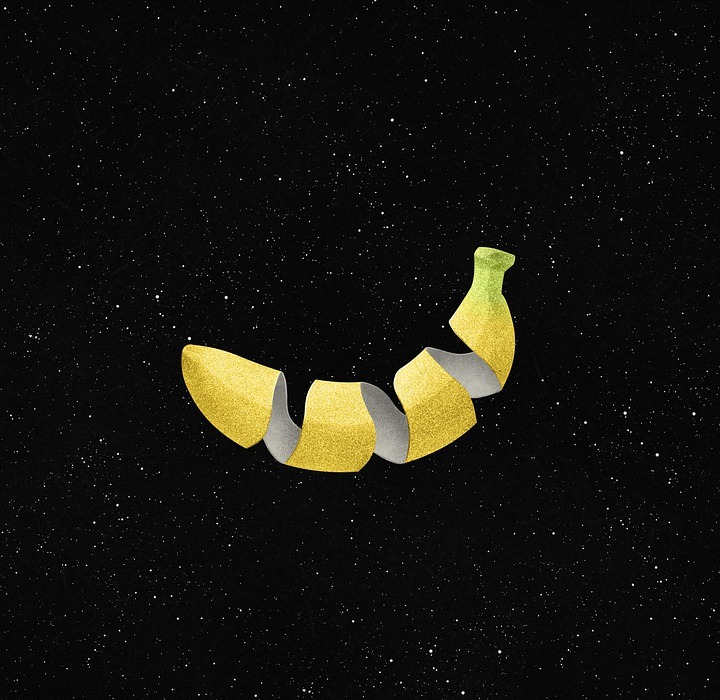This article explores the question of whether bananas are a suitable treat for our canine companions. We will examine the nutritional benefits and potential risks associated with feeding bananas to dogs, provide guidance on how to safely incorporate them into their diet, and address common queries regarding banana consumption for dogs.
Part 1: The Nutritional Value of Bananas for Dogs

1.1. A Source of Essential Nutrients
Bananas are a good source of several nutrients that can benefit dogs, including:
- Potassium: Essential for muscle function, nerve transmission, and maintaining healthy blood pressure. A deficiency in potassium can lead to muscle weakness, lethargy, and heart problems in dogs. Bananas can help ensure your dog maintains adequate potassium levels.
- Vitamin B6: Plays a crucial role in metabolism, brain function, and the formation of red blood cells. Vitamin B6 deficiency in dogs can lead to skin and coat problems, as well as neurological issues.
- Vitamin C: A powerful antioxidant that supports immune function and collagen production. While dogs can produce their own vitamin C, additional sources like bananas can help boost their immune system and support healthy skin and joints.
- Fibre: Promotes digestive health, regulates bowel movements, and contributes to satiety. Dietary fibre is essential for a healthy digestive system, and bananas can help prevent constipation and promote regular bowel movements in dogs.
1.2. The Importance of Dietary Balance
While bananas offer several beneficial nutrients, it is important to remember that they should not be considered a complete dietary source for dogs. A balanced diet consisting of high-quality dog food, along with appropriate portions of other fruits, vegetables, and protein sources, is crucial for maintaining optimal health.
1.3. The Role of Bananas as a Treat
Bananas can be a tasty and nutritious treat for dogs, but they should be given in moderation. They can be incorporated into a balanced diet as part of a dog's overall nutritional plan. However, they should not replace regular meals or essential nutrients found in dog food.
1.4. The Nutritional Profile of Bananas
A medium-sized banana contains approximately:
- 105 calories
- 27 grams of carbohydrates
- 1 gram of protein
- 0.3 grams of fat
- 3.6 grams of fibre
- 422 milligrams of potassium
- 0.4 milligrams of vitamin B6
- 8.9 milligrams of vitamin C
1.5. Consider Your Dog's Individual Needs
The nutritional value of bananas can vary depending on the size and breed of your dog. Larger breeds may require more calories and nutrients than smaller breeds. It's essential to consider your dog's individual needs and consult with a veterinarian to determine the appropriate amount of bananas to include in their diet.
Part 2: Potential Risks of Feeding Bananas to Dogs

2.1. Sugar Content
While bananas are a natural source of sugar, excessive consumption can lead to weight gain and dental problems. The sugar content in bananas can contribute to weight gain in dogs, especially if they are already prone to obesity. Additionally, the sugar can stick to their teeth and contribute to plaque buildup and dental issues.
2.2. Gastrointestinal Issues
Bananas can cause digestive upset in some dogs, particularly if they are eaten in large quantities or are not accustomed to them. Symptoms may include diarrhoea, vomiting, or gas. Dogs with sensitive stomachs or digestive problems may react negatively to the high fibre content in bananas, causing discomfort or diarrhoea. It is advisable to start with small amounts and monitor your dog's reaction.
2.3. Allergic Reactions
Although rare, some dogs may experience allergic reactions to bananas. Signs of an allergic reaction may include itching, swelling, or difficulty breathing. While allergic reactions to bananas are uncommon, it's crucial to be aware of any potential symptoms and seek immediate veterinary attention if you suspect your dog is having an allergic reaction.
Part 3: How to Safely Feed Bananas to Your Dog

3.1. Moderation is Key
Bananas should be given as a treat in moderation. A small piece or slice is generally sufficient for most dogs. The recommended amount of bananas for your dog will depend on their size, breed, activity level, and overall diet. Consult with your veterinarian for specific recommendations.
3.2. Choosing the Right Banana
Ripe bananas are generally preferred, as they are softer and easier for dogs to digest. Avoid giving dogs unripe bananas, as they can be harder to chew and may cause digestive issues. Ripe bananas have a softer texture and are easier for dogs to chew and digest. Unripe bananas can be more difficult to eat and may cause discomfort or digestive upset.
3.3. Preparing Bananas for Your Dog
Bananas can be given to dogs whole, sliced, or mashed. You can also freeze banana slices for a refreshing treat. Freezing banana slices can make them a fun and refreshing treat for dogs, especially during warmer weather. However, make sure the slices are small enough to prevent choking hazards.
3.4. Introducing Bananas Gradually
If you are introducing bananas to your dog for the first time, start with a small amount and monitor their reaction. If they show any signs of digestive upset, stop giving them bananas and consult your veterinarian. It's crucial to introduce new foods gradually to minimize the risk of digestive issues. Start with a small amount and gradually increase the portion size over a few days.
Part 4: Banana Alternatives for Dogs
4.1. Other Fruit Options
Other fruits that are safe for dogs in moderation include apples (without seeds), blueberries, raspberries, and strawberries. These fruits offer a range of nutrients and can be enjoyed as occasional treats for dogs. However, always remove the seeds or pits from fruits like apples and peaches, as they can be toxic to dogs.
4.2. Vegetable Treats
Vegetables such as carrots, green beans, and broccoli can be healthy and tasty treats for dogs. These vegetables are low in calories and rich in vitamins and minerals. They can be given raw, cooked, or steamed, and can be a great way to add variety to your dog's diet.
4.3. Commercial Dog Treats
There are numerous commercial dog treats available that provide a variety of flavours and nutritional benefits. Commercial dog treats can be a convenient and tasty option for rewarding your dog. Choose treats that are specifically formulated for dogs and avoid those containing artificial sweeteners, colours, or preservatives.
Part 5: FAQs
5.1. Can puppies eat bananas?
Puppies can usually eat bananas, but it's important to introduce them gradually and in small amounts. As with adult dogs, ensure the banana is ripe and soft. Puppies have more sensitive digestive systems and may be more prone to digestive upset. Introduce bananas gradually and monitor their reactions closely.
5.2. Can dogs eat banana peels?
Banana peels are not digestible for dogs and can cause digestive issues. It is best to avoid feeding them to your dog. The outer peel of bananas is tough and difficult for dogs to digest. They may also contain pesticides or chemicals that can be harmful.
5.3. How often can I give my dog a banana?
The frequency of banana treats depends on your dog's size, activity level, and overall diet. As a general guideline, a small banana slice once or twice a week is a reasonable amount. Consult with your veterinarian for specific recommendations based on your dog's individual needs.
5.4. Can dogs eat banana chips?
Banana chips are generally safe for dogs, but they tend to be higher in sugar than fresh bananas. It is best to choose unsweetened banana chips and give them sparingly. Banana chips are a dehydrated form of bananas and can be a tasty treat for dogs. However, they are often high in sugar, so choose unsweetened varieties and give them in moderation.
5.5. What if my dog eats too many bananas?
If your dog eats an excessive amount of bananas, they may experience digestive upset, such as diarrhoea or vomiting. Monitor their behaviour and contact your veterinarian if you have any concerns. If you suspect your dog has eaten too many bananas, monitor their behaviour closely for any signs of digestive upset. If you notice any unusual symptoms, contact your veterinarian for guidance.
5.6. Can bananas cause obesity in dogs?
Bananas are relatively low in calories, but excessive consumption can contribute to weight gain. It is important to feed bananas in moderation and consider their calorie content as part of your dog's overall diet. While bananas are a healthy treat, it's crucial to remember that excess calories can lead to weight gain. Feed bananas in moderation and adjust your dog's overall diet accordingly to maintain a healthy weight.
5.7. Are there any specific dog breeds that should avoid bananas?
While bananas are generally safe for most dog breeds, it's important to consider individual sensitivities. Some breeds may be more prone to digestive issues or allergies. If you are unsure, consult with your veterinarian. It's always best to consult with your veterinarian for personalized advice regarding your dog's diet.
5.8. Are there any other potential concerns related to feeding bananas to dogs?
While bananas are generally safe, it's worth noting that they contain a compound called tannin. Tannins can interfere with the absorption of iron, but in small quantities, this is unlikely to be a significant issue. If you have concerns, speak to your veterinarian. While the tannin content in bananas is relatively low, it's worth considering if your dog has any pre-existing conditions or iron deficiencies.
Everyone is watching
-

Can Dogs Eat Bananas? A Guide to Safe Treats
DOGS & PUPPIESThis comprehensive guide will delve into the world of canine nutrition, focusing on the popular question: can ...
-

Can Dogs Eat Oranges? (Is It Safe or Toxic?)
DOGS & PUPPIESThis article delves into the question of whether dogs can safely consume oranges. We'll explore the nutrition...
-

Can Dogs Eat Grapes? The Shocking Truth About This Fruit
DOGS & PUPPIESThis article delves into the controversial topic of grapes and dogs, exploring the potential dangers associate...
-

Why Do Dogs Eat Poop? Understanding Coprophagia in Dogs
DOGS & PUPPIESThis article delves into the perplexing phenomenon of coprophagia, the act of eating faeces, in dogs. We explo...
-

Can Dogs Eat Shrimp? A Guide to Safety and Risks
DOGS & PUPPIESThis comprehensive guide dives into the world of shrimp and dogs, exploring the potential benefits and risks a...
